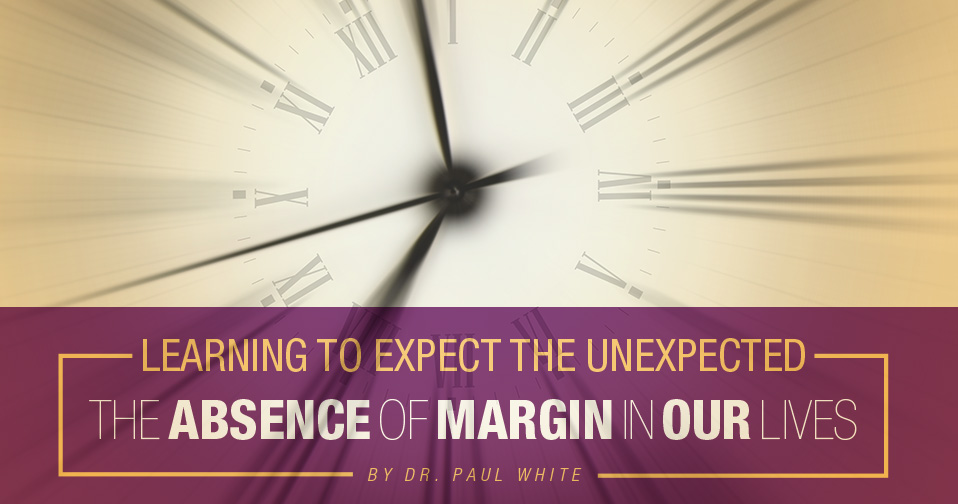Perseverance Isn’t Enough

One of the privileges I have in consulting with family-owned businesses is to interview the founders of the business and hear their personal and business histories. One of the questions I ask is: “To what do you attribute your financial and business success?” The most common response across all respondents is: perseverance (In fact, I cannot remember one single interview where this wasn’t part of the answer given.) Although each person may describe the process somewhat differently, the theme is the same: “not giving up,” “sticking to it over the long haul,” “continuing to do what we knew was right”.
As I have continued to work with businesses and leaders over the past 15+ years, often walking along side of them for several years, I have been able to observe this “perseverance” displayed in various ways – some healthy, and some not so healthy. This has led me to ask questions to understand when and why perseverance is beneficial and when it is not.
Perseverance Defined
One definition of perseverance is, “the quality that allows someone to continue trying to do something even though it is difficult”; this essentially describes perseverance as a character quality. A more concise, practical description I like is: “to continue despite difficulties, opposition, or discouragement.” I prefer this definition, because it describes perseverance as a process, an action, rather than a quality we may or may not possess.
Generally speaking, perseverance is viewed as a positive character quality, and, in fact, is cited by numerous leaders as foundational to success:
"I do not think there is any other quality so essential to success of any kind as the quality of perseverance. It overcomes almost everything, even nature."John D. Rockefeller
"Nothing in the world can take the place of persistence. Talent will not; nothing is more common than unsuccessful men with talent. Genius will not; unrewarded genius is almost a proverb. Education will not; the world is full of educated derelicts. Persistence and determination alone are omnipotent. The slogan, ‘press on’ has solved, and always will solve, the problems of the human race."Calvin Coolidge
Additionally, followers of Christ are praised in Scripture when describing continued commitment to Christ in the midst of opposition and difficulties:
"Therefore, among God’s churches we boast about your perseverance and faith in all the persecutions and trials you are enduring."II Thessalonians 1:4
"I know your deeds, your love and faith, your service and perseverance, and that you are now doing more than you did at first."Revelation 2:19
Conversely, there are numerous negative terms for those who don’t persevere. They are described as “giving up,” “quitting,” “admitting defeat,” and ultimately, “failing.” But I am not sure these are fair (or accurate) terms for all situations in which a person decides to discontinue the pursuit of a goal.
The character qualities of faithfulness, honoring one’s word, hard work, and perseverance are clearly desirable. But sometimes, especially in the Protestant subculture, these characteristics are intertwined to the point that they become indistinguishable. And this can create problems in decision-making. Can you be faithful and honor your commitment, but, at the same time give up? (In some situations, yes you can.)
I do believe, and have observed, that there are situations in which it is best to not persevere (That almost sounds like heresy to my Midwestern Protestant work ethic mind!). There are times to decide that “enough is enough” and to turn aside from one’s dream and to pursue a different pathway.
For example, was it more honorable for some pioneers to continue in their journey across the Wild West and die in the process, or to choose to only go part of the way and make a life where they were, even though it wasn’t their ultimate destination? Or in today’s society, is it better to pursue a career or business goal that consumes virtually all of one’s time, emotional energy and finances (to the detriment of one’s marriage and family members’ lives) or to say, “It’s not working. I give up.” and pursue a different path?
When to Persevere?
For many (myself included), in many business ventures and career paths, the question becomes: How long should I continue to pursue this goal, and when would it be wiser to stop?
What is interesting to me is that the character quality of perseverance can be described as a positive trait or a weakness, based on the perspective of the observer (or possibly, depending on the outcome of the continued effort). Phrases with a positive viewpoint include: “hang in there,” “don’t give up,” “gut it out” or “stay committed.” On the other hand, continuing on one’s course of action can also be described as: “bull-headed”, “not willing to learn”, “foolishness”, and “idealistic”. Generally, there has been a cultural bias toward viewing perseverance positively – and maybe justifiably so. The natural inclination for most of us, it seems, is to give up easily (think of most children and adolescents); and we need to be trained to “hang in there” and not give up. And clearly in the business world, there has been an honorable connotation to those who “stick with it.” This is changing, culturally, however.
The Idolizing of Instant Success
The overall culture in the Western world idolizes quick successes and really doesn’t think much of the boring, “steady as she goes,” day in, day out plodding that characterizes much of life. In fact, I would go so far as to say that the mainstream media and our culture generally undermines the development of perseverance. We are enticed and become enamored with the latest instant millionaire (or billionaire) who hit it big—either through a high tech start-up, a 16-year old megastar in music, or possibly a 22-year old athlete who signs a multi-year, multimillion dollar contract. Their instant financial success is waved in front of us like the light of a bug zapper in front of a moth. We are drawn and mesmerized by the light, temporarily forgetting everything else we were doing prior to seeing it. While some may try to pursue that pathway, many of us continue on our current paths–but become discouraged and discontent when “success” seems like a distant goal for us, while others seem to reach it quickly and easily.
The Conclusion: Perseverance + Wisdom is Needed
So where does this lead us? It would be easy to conclude, “Well, you won’t be successful if you give up before you reach your goal.” While that is often true, it is also a false dichotomy.
Some people fail because they continue to pursue a goal beyond which it is wise, and they expend all of their life’s resources to do so. Alternatively, many individuals have actually become successful because they quit pursuing their initial goal and pursued a different opportunity that crossed their path. Perseverance, in and of itself, does not guarantee positive results.
"Successful individuals combine the tenacity of “sticking with it” with wisdom and discernment. They seek wise counsel and listen to those who have broaderlife experience."Dr. Paul White
They listen to the feedback from the marketplace. They learn how to assess and manage risk. Fortunately, and most importantly, God has promised to give us wisdom when we ask for it (James 1:5), and to lead and guide us in the ways we should go (Proverbs 3:5,6).
So, the conclusion I reach is: Perseverance is a key character quality that is beneficial in life and which often leads to positive results. However, other characteristics are needed in addition to perseverance to know when it is wise to keep going and when to quit.

By: Dr. Paul White
Dr. Paul White is a psychologist, speaker, and consultant who makes work relationships work. Co-author of the 5 Languages of Appreciation in the Workplace (with Dr. Gary Chapman), Dr. White provides practical advice in improving workplace relationships and successfully transferring family businesses across generations.
Read More Articles by Dr. Paul White




